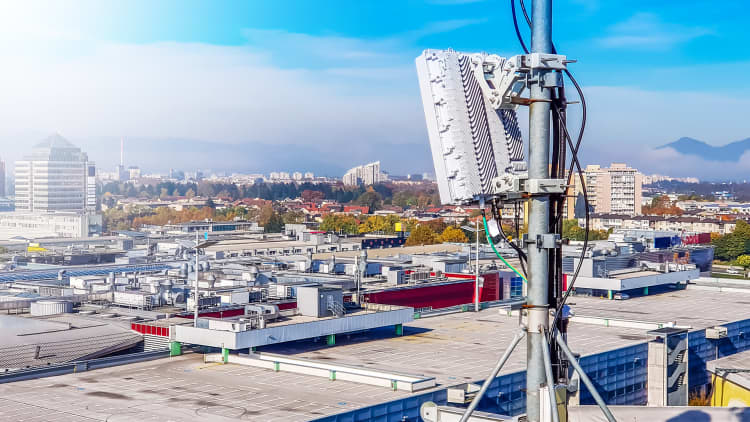AT&T said Tuesday that it will launch its first 5G phone, built by Samsung, in the first half of next year. Verizon said the same thing on Monday, and T-Mobile and Sprint have promised 5G devices in the future as well.
It may sound exciting, but you don't need to worry about buying one of the first phones to support it.
The new 5G networks rolling out in 2019 will offer faster speeds and better connectivity, but most people won't be able to access them since they'll only be available in a small number of markets next year. Plus, the way we use phones today won't really require the faster data speeds 5G will offer. Today's 4G LTE networks are more than fast enough for all the video and music streaming you want to do on your phone.
AT&T has promised coverage in only 12 cities by the end of this year and seven additional cities during the first half of 2019. Verizon's commercial 5G service is currently only available in just five markets. T-Mobile says it will launch a nationwide network in 2020. Sprint says its first 5G phone, built by LG, will arrive in the first half of next year, but will support 5G speeds in only nine markets before it rolls out to additional areas. These phones will also work on 4G LTE networks when they aren't on 5G. Your current phone won't be able to work on 5G, however.
And device selection will be limited at first, so don't expect a 5G iPhone to work on these networks right away. On Monday, Bloomberg reported that Apple will wait until 2020 to release a 5G iPhone. That's not out of the ordinary and hasn't seemed to affect iPhone sales in the past, when Apple waited longer than its rivals to adopt 3G and 4G networks.
Apple has typically waited until networks are more mature and widespread to add support for faster networks to its devices. The first iPhone launched with older 2G EDGE technology even while faster 3G networks were beginning to roll out in the United States. Likewise, the first 4G LTE phone launched in 2011, but Apple didn't add LTE support until the following year.
More importantly, there aren't many compelling reasons to buy a 5G phone yet. The 4G LTE enabled things we now take for granted include high-quality video chat, the ability to stream movies pretty much anywhere and much faster download speeds. Apps that enabled these sorts of experiences, like Snapchat, followed. But all of those things took time to roll out and weren't immediately available when LTE launched.
While commercial 5G promises faster home-internet speeds that top what you might find from your current internet provider — and will alleviate the need to run wires all over your house — most people probably won't find a need to upgrade to new phones simply because they can download a movie faster. Carriers, app developers and other partners will need to show consumers what else they can do with 5G phones that will make them a must-buy before the networks are available nationwide.
We might have answers to some of that pretty soon.
Qualcomm's Snapdragon Tech Summit kicks off on Tuesday. It's where partners such as Samsung may provide more detail on the first devices to support 5G technology. Similar announcements are expected during CES in early January.
There will be a lot of hype around 5G smartphones in 2019, but it'll still be too early for most people to buy in.






